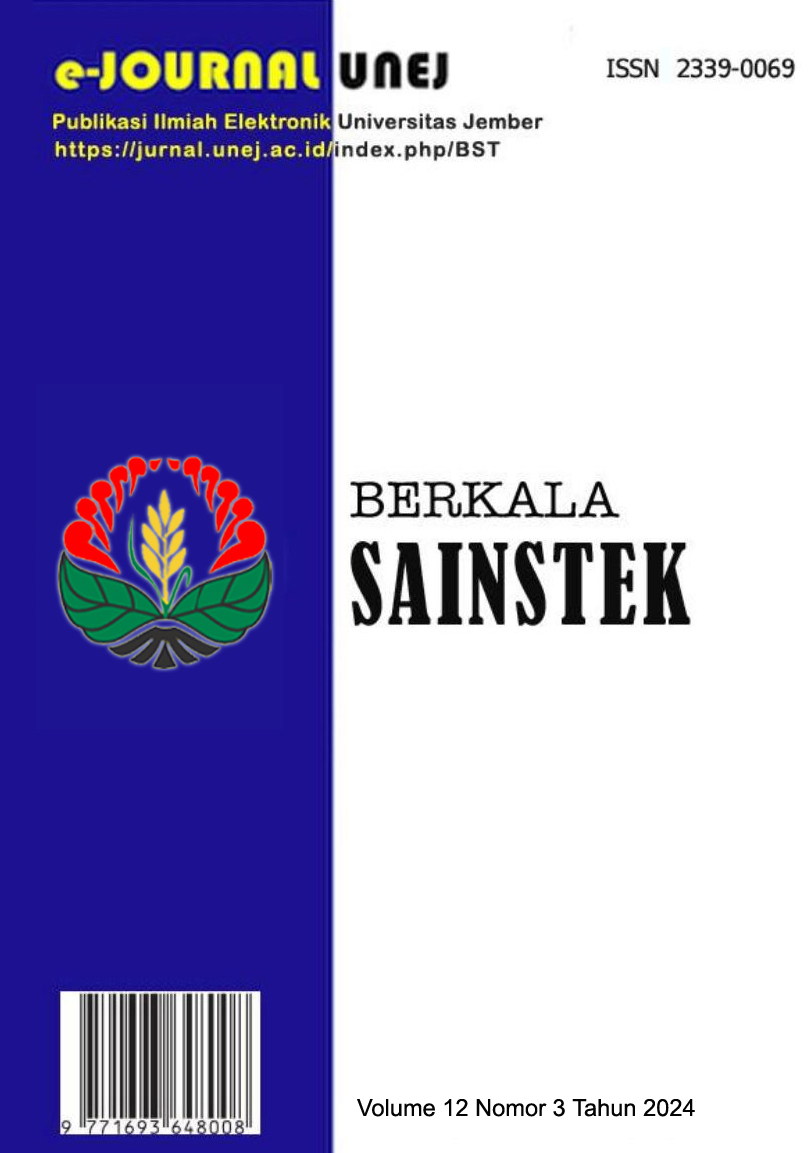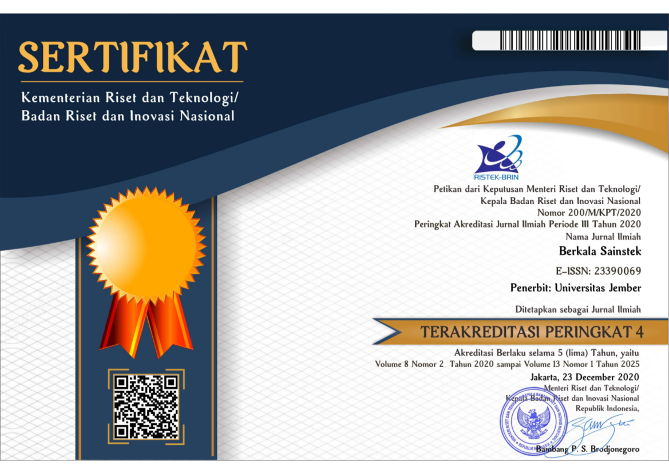Metic: Biodegradable Plastic from Melinjo Starch and Waste Cooking Oil (WCO) as an Alternative Food Packaging
DOI:
https://doi.org/10.19184/bst.v12i3.46829Keywords:
Melinjo seed starch, Waste utilization, Metic, Bioplastic, Food packagingAbstract
The use of plastic in food packaging and the high amount of plastic waste generated worldwide, including Indonesia, are serious threats to the environment. In addition, synthetic plastics in food packaging can also harm human health. Bioplastic products from natural ingredients and waste materials are developed as an alternative to reduce these risks. The purpose of this study was to determine the effect of the addition of starch concentration from melinjo seeds (Gnetum gnemon L.) with a combination of glycerol from waste cooking oil and chitosan substances from waste fish scales on the physical properties and biodegradability of bioplastics. To make bioplastic samples, the variation of melinjo seed starch concentration used in this study was 5, 10, and 15 grams with additional ingredients of 1 ml of glycerol and 1 gram of chitosan for each sample. Bioplastics were made at 32°C for 72 hours. Bioplastic properties were tested by conducting several tests such as swelling percentage, water and temperature resistance tests, tensile strength tests, elongation tests, and biodegradation tests. Based on this study, plastic with a composition of 5 grams of starch, 1 ml of glycerol, and 1 gram of chitosan produces the best physical characteristics of bioplastics and good reasonable biodegradation rates. Further research is recommended by increasing the concentration of starch, glycerol, and chitosan to produce better-quality bioplastics to be used as an alternative to commercial plastics.






